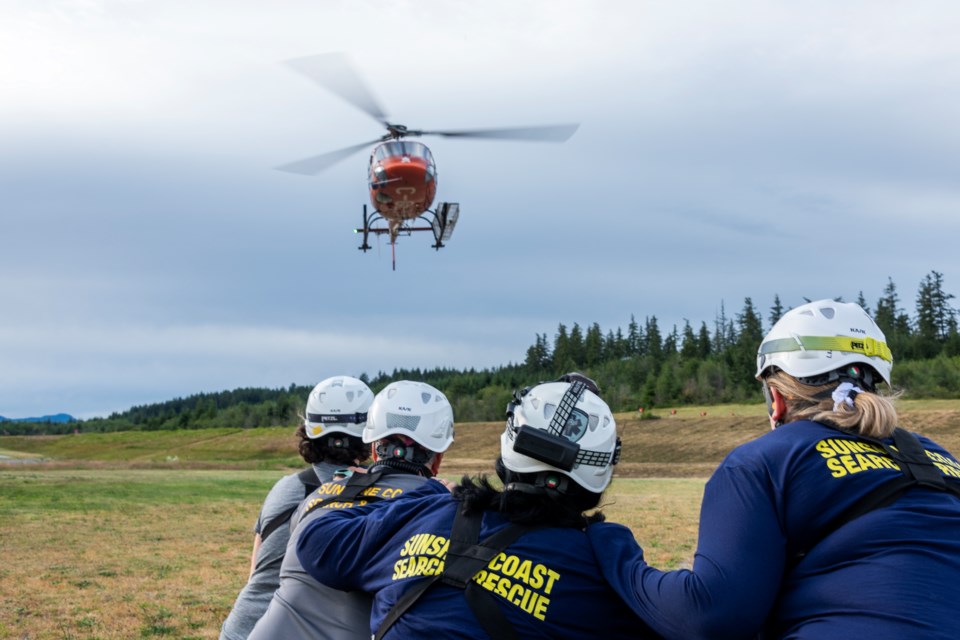Sunshine Coast Search and Rescue crews were called out three times over the weekend in response to heat-related emergencies in the backcountry, underscoring the growing risks of hiking during extreme temperatures.
Sue Duxbury from Sunshine Coast Search and Rescue recounted the trio of incidents, which began the afternoon of Friday, Aug. 22 in Tetrahedron Provincial Park.
“We were notified by an inReach message that there was a 75-year-old man near Victor’s Landing, and he was suffering heat exhaustion. He was nauseous, dizzy, kind of falling down,” said Duxbury. The man’s group managed to cool him down and walk out slowly, allowing SAR to stand down. “He was very appreciative … and also a little in disbelief, because he’s been on the Coast forever and never had any issues.”
Just hours later, SAR was called to the Mount Elphinstone Summit Trail, where three young adults had ventured out “with nothing but a cell phone,” Duxbury said. “I’m talking skimpy shorts and sports bras, not even a baseball cap… no gear, nothing except their precious cell phone.” The group became disoriented and dehydrated, and SAR teams helped guide them back to safety. “This one was, I think, partially heat stroke, they were disoriented, they thought they knew where they were, but they couldn’t point to the ferry from Sprockids.”
The third callout came the afternoon of Sunday, Aug. 24, again in the Tetrahedron area. A group of three local young men became disoriented and ill after climbing Panther Peak and attempting to exit via McNair Forest Road — unaware that the road has been gated for years. “They had been nauseous and dizzy, and they had been out in the dark, which doesn’t help,” Duxbury said.
SAR flew in via helicopter, hydrated the group, and eventually flew them out. “They had recovered to the point where they were happy just to go home.”
Duxbury emphasized that while satellite communication devices like Garmin inReach and SPOT are helping SAR respond more effectively, they’re no substitute for preparation. “It’s great that you can go and spend money on an inReach. However, please be prepared to stay out overnight and be prepared for the heat, and don’t be afraid to turn around when you’re only halfway there.”
The SAR team also shared a public advisory on hiking in extreme heat, warning that “heat exhaustion, dehydration, and impaired judgment can affect anyone, regardless of experience or fitness level.” They recommend hikers:
- Avoid peak heat hours (10 a.m. to 4 p.m.)
- Carry ample water and electrolytes
- Wear sun-protective clothing and sunscreen
- Take frequent breaks in shade
- Know their limits and turn back if feeling unwell
- Inform someone of their route and return time
With more hot days ahead, Duxbury said SAR is bracing for additional callouts. “I hope not, but I’m prepared.”
Jordan Copp is Coast Reporter’s civic and Indigenous affairs reporter. This reporting beat is made possible by the Local Journalism Initiative.
Words missing in article? Your adblocker might be preventing hyperlinked text from appearing.



